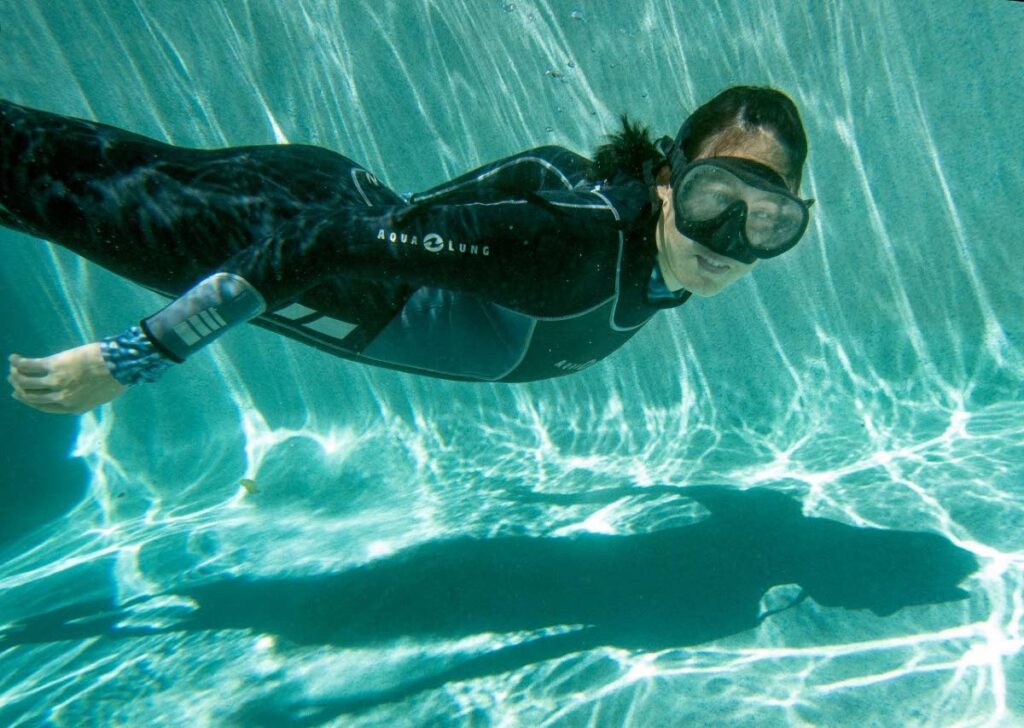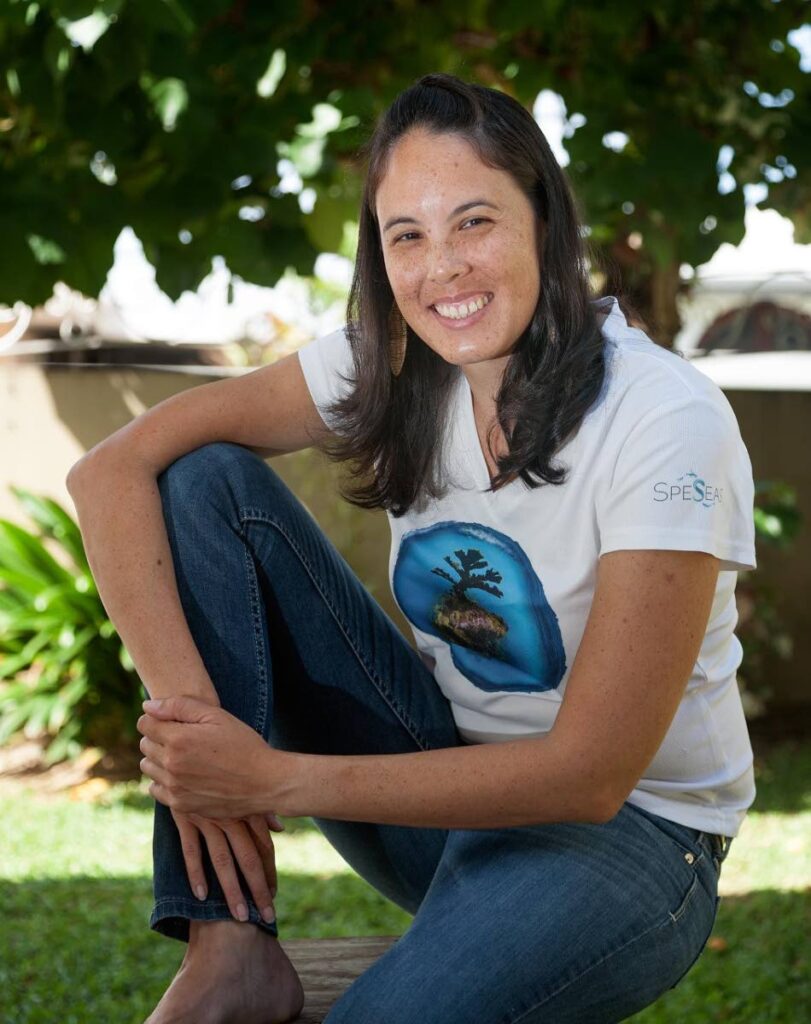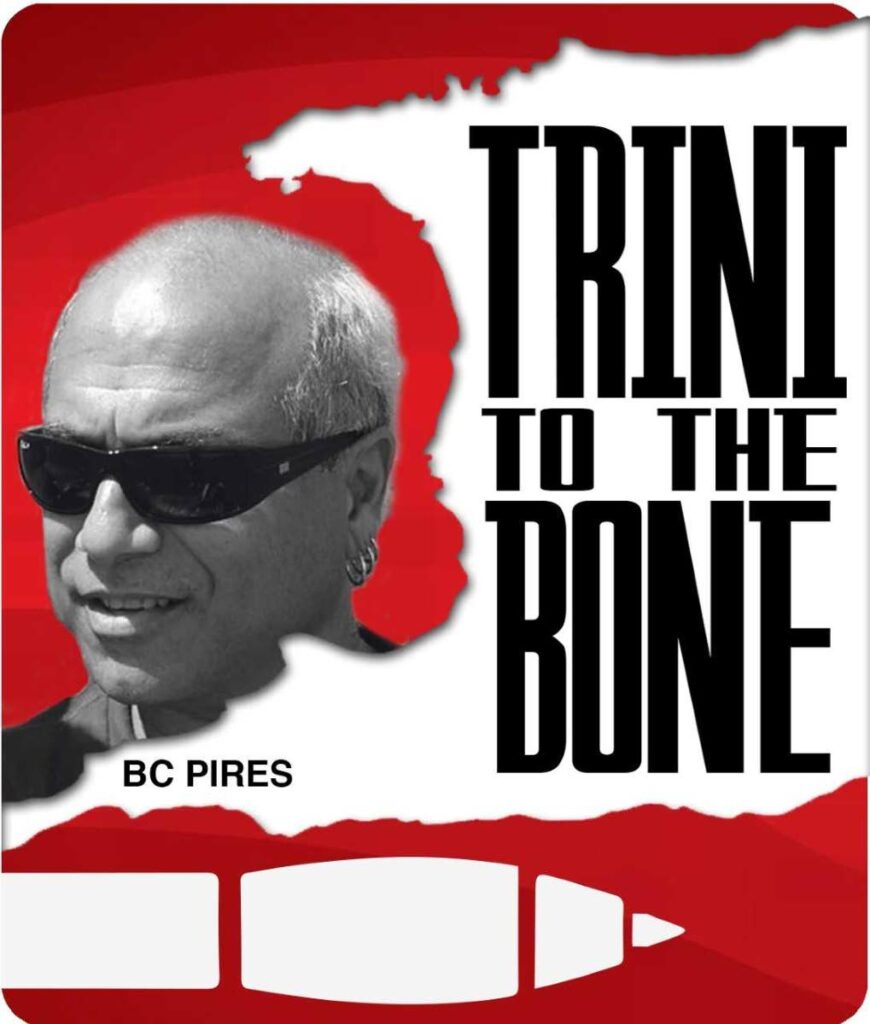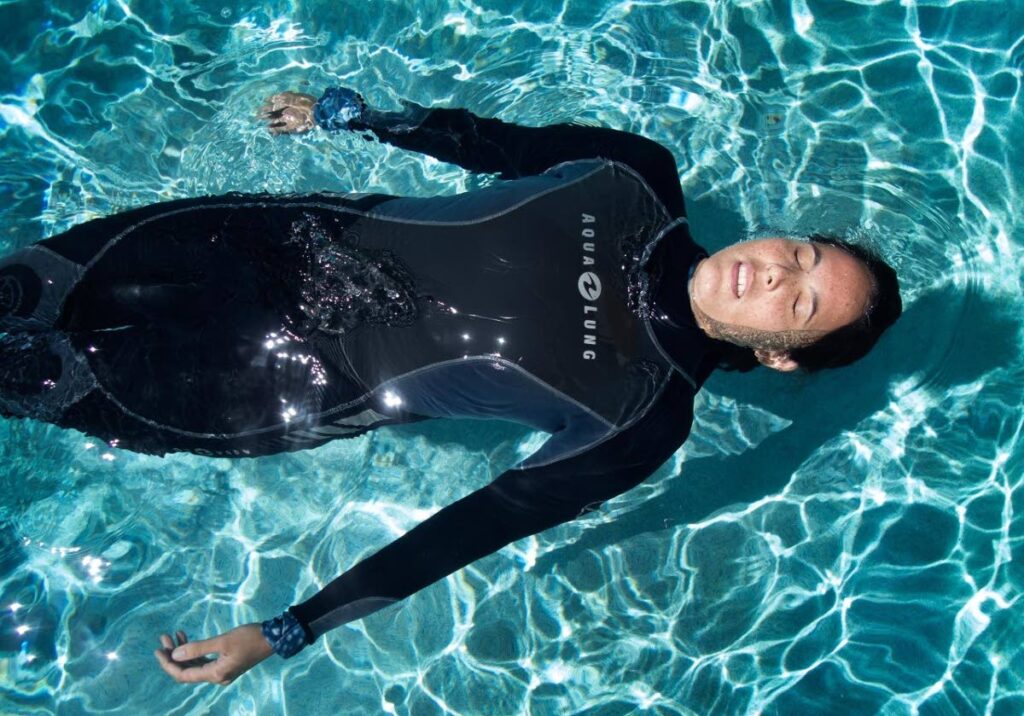Maybe they should have called me Coral…

AS TOLD TO BC PIRES
My name is Dr Anjani Ganase and I’m a director of SpeSeas, an NGO dedicated to making positive changes to the way the ocean is used.
I'm born and raised in Santa Cruz. Until I was 13 or 14, we lived on a seven-acre farm. Me and my brother trudging through the bush with a spear, spying on the farm animals. We were kicked out of the house in the morning and just had to go climb trees, pick cocoa… and not tell the parents if you did anything dangerous or stupid.
I grew up in a small family: my brother Orion, my parents, Ranjie and Pat, and my grandfather Cecil Wong Chong, (who) helped take care of us.
But then I enjoyed these periods of intense amounts of family, the summer and Christmas influx of cousins upon cousins.
They spoke French with Dad, but we only spoke English. We didn’t have much conversation, but still got along.
After ten years living abroad, I was at home when my dad was diagnosed with cancer.
I was grateful to (share) the last year of his life.
But it’s still very tough without him. My dad was always the energy in the room. He soaked up (everyone into his orbit). He was always very loud.

So now we crack the odd joke to break the silence.
It was only when Dad passed I realised Mom was just as crazy and mischievous as he was! It was almost like she had this person, in him, who could express that part of her.
I learned from both my parents. I learned what not to do from Dad. And I learned
exactly what to do from Mom.
Eventually, maybe, if it happens, I want a family.
I’m not planning or pining for it. I pine more for a purpose. I think I have a family of sorts already, not a conventional family.
I generally have people around me I care about but my dogs are as much responsibility as I would give myself (now) in terms of (taking care of) something.
I wasn’t raised in any faith and don’t have faith in religion.
I have faith in dogs. They’re reliable.
I’m in a relationship with Nicholas Marfan – a dog trainer. I think we share a love for dogs.
My dog Nala, like in the Chronicles of Narnia, is a two-year old shepherd.
Sox the giant Akita is more Mom’s dog.
Dad was (dismissive of) religion, Mom was open.
I explored religion and got confirmed in high school. Because I was a teenager and everybody else went to church and I didn’t have a church.
Some of the teaching was useful and logical but it was not for me.
My dad hated them, so his funeral could not be “a funeral”!
First, it could not be in a church, ‘cause he always said he would burn up if he entered a church.
So we found a nice place in San Antonio, near the horse farm. And “the funeral” was more like, “If you have a nice story about Ranjie, stand up.” There was a
lot of laughs. Which is how he would have wanted it.
Since I could remember, I used to go to the movies once a week. Until covid hit. Even a crappy movie.
I just love the theatre and the surround sound and the popcorn and whatnot.
Since I knew myself, I wanted to do marine biology.

I studied in Florida and then did limnology and oceanography in Amsterdam, focusing on coral reef science.
The Dutch really want you to work in your master’s so I did two internships, one in Curacao, one in Australia, and got my PhD there.
I spend most of my time working. I have my day job at the Institute of Marine Affairs.
On weekends I write columns for Wild Tobago and I have SpeSeas as well, for evening time, during the day, whenever.
(For 99 per cent of the world’s population) the ocean is out of sight and out of mind. So, for those fortunate enough to be able to dive underwater, the ocean is a special thing we want more people to discover and, hopefully, appreciate a little better.
SpeSeas didn’t grow out of friendship, rather a shared passion that is the ocean.
There are a lot of conservation NGOs in TT, but most do not have the expertise on the marine environment.
In 2017, a small group of enthusiastic marine scientists wanted to create a source of reliable information. To educate people about how lucky we are to have the marine environment, and how we benefit from it.

No, BC Pires, you don’t have to be a good-looking mixed-race woman to join SpeSeas. As scientists, we don’t see those kinds of things.
I don’t think gender or looks come up in our conversations at all.
But thank you.
Gosh, I hope SpeSeas is not dismissed as “middle-class people with time for luxury activism.” We don't see ourselves as activists but more like an honest broker. We hope people will see us as a trusted source (on) marine environment issues.
We have mostly been educational, providing the facts. (Such as) the impact of the Toco port on marine life and ecosystems, the impact of pollution and hotel development on protected areas (and how) considerably we benefit from our ocean backyard.
Many of us have grandparents who came from large land masses – Africa, India and China. We therefore have a relatively new relationship with the island ecosystem.
In comparison, the Solomon Islands (have) over 60,000 years of ancestral experience of living off islands and ocean. They (consequently have) better forms of marine conservation or more sustainable relationships with ocean ecosystems.
What we do on land affects our ocean backyard (because) all our rivers lead to the ocean.
By far the greatest danger to our seas is climate change. The biggest issue affecting the coral reefs of Tobago is climate change.
To say there is no scientific consensus on global warming is to disregard a significant amount of work.
I was a very low-down part – they needed plebs! – of the IPCC 1.5-degrees-rise report.
It’s a wealth of research, a massive body of scientists that responded to governments in a very transparent, inclusive process. The science (and the consensus) is clear.
Buccoo Reef isn’t dead. In the 1980s, a very important sea urchin on all our Caribbean reefs was wiped out by disease. The reefs didn’t die off, but there was (now) an instability within the reef. If a hurricane (killed) the high coral cover, they would not recover because the urchins weren’t there to scrape up and eat all the algae.
So we found sequential loss of coral life throughout the region because there was no recovery back to that coral state.
That instability still exists. That’s what you see in Buccoo Reef: devastation by disease and impact without the organisms and conditions to right itself and allow for natural recovery.
Next to climate change, I would say over-fishing and pollution are chronic issues that can easily be managed. If there was the willpower to enforce it.
The best part of being in SpeSeas is the shared passion and collective understanding of the urgent need for ocean conservation.
We work for SpeSeas during our evenings and weekends. So it helps to have that team effort.
The worst part is the nagging frustration that we should be doing more or moving faster. We all have day jobs.
To me, a Trini is a force to be reckoned with.
Trinidad and Tobago is the source of my renewal, the place where I’m always refreshed. It’s frustrating to like this place as much as I do. A lot of Trinis have that pure joy just to be part of TT.
But at the same time, it’s like being in an abusive relationship.
Read the full version of this feature on Friday evening at www.BCPires.com


Comments
"Maybe they should have called me Coral…"